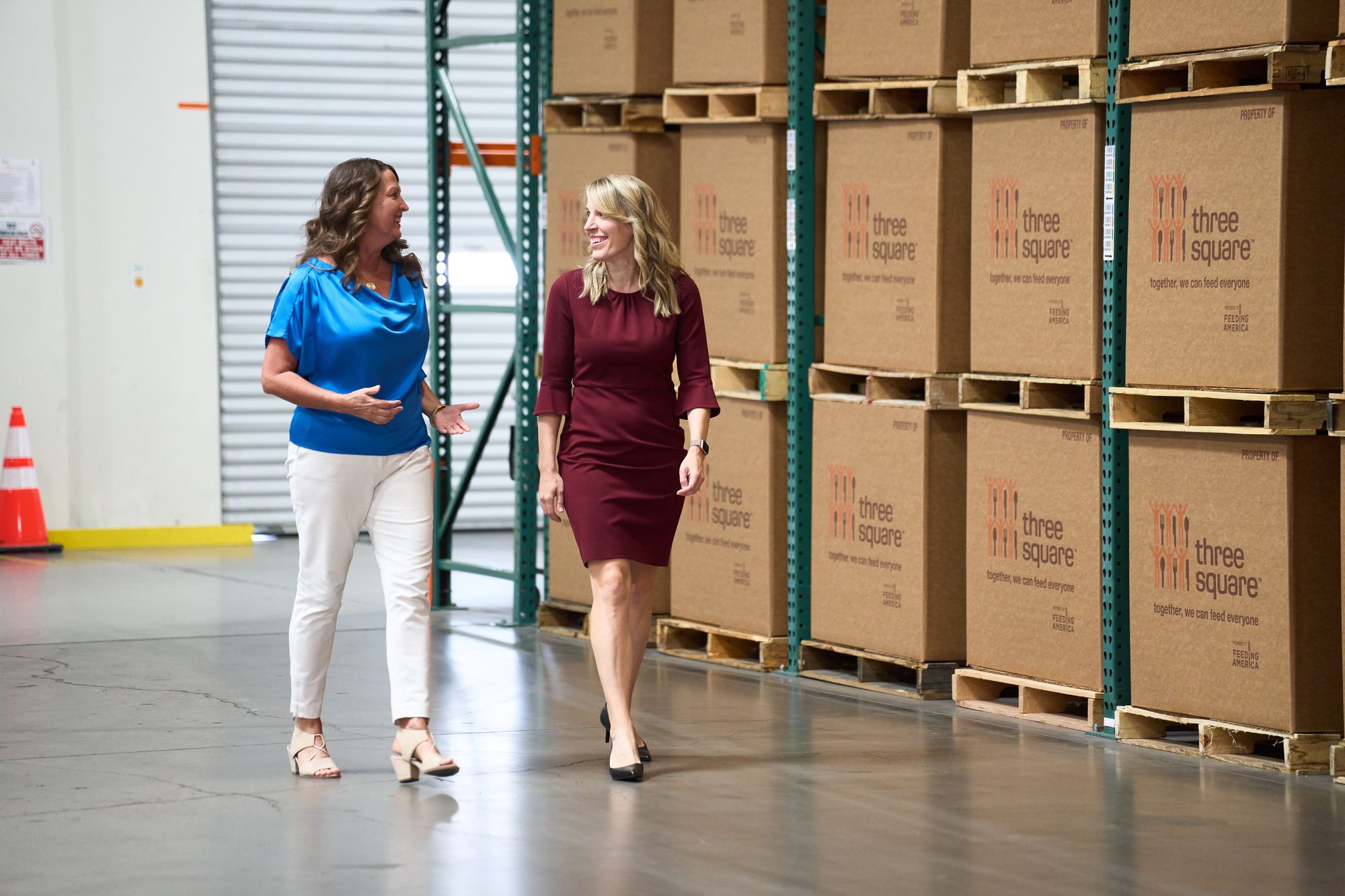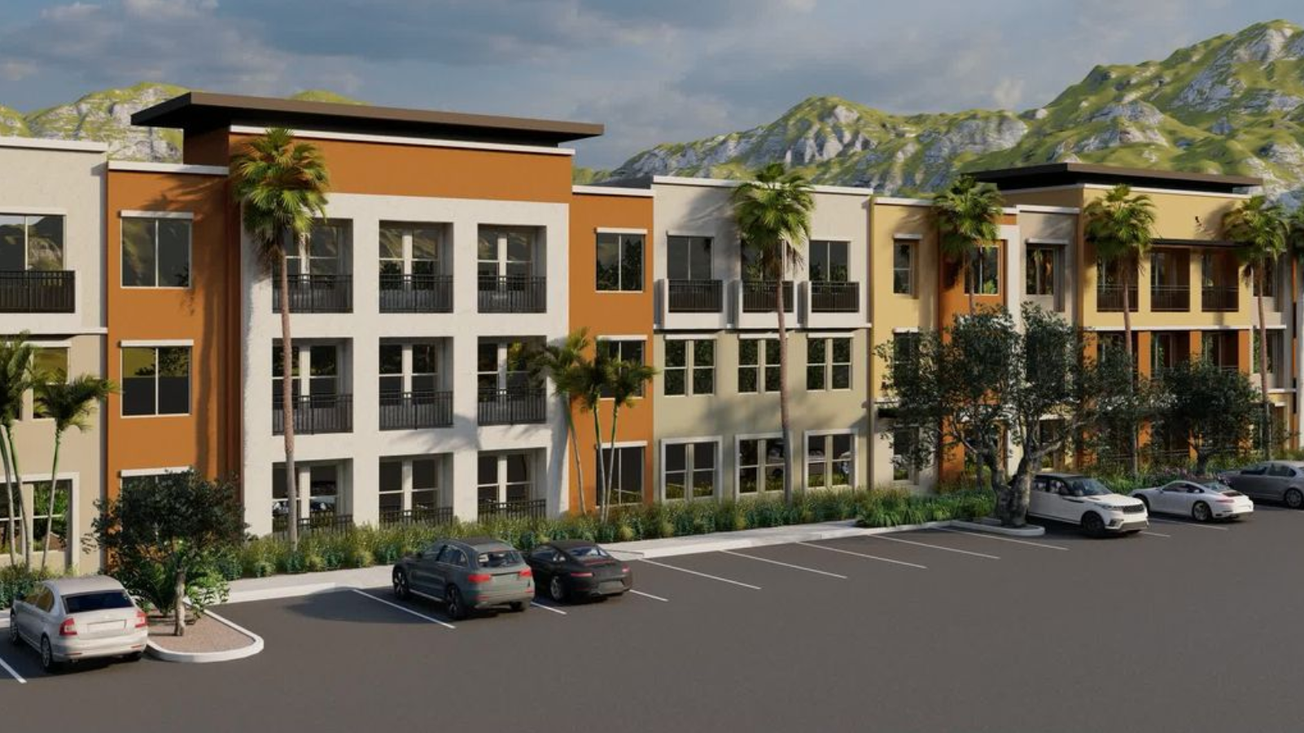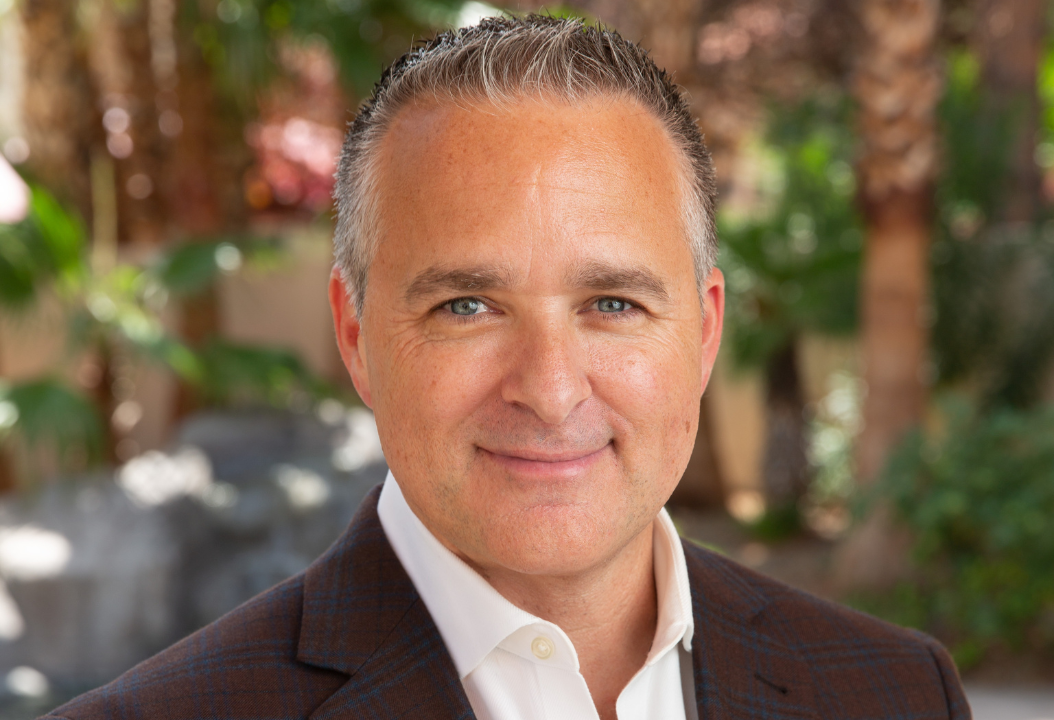Beth Martino is the President and CEO of Three Square Food Bank, Southern Nevada’s only food bank and largest hunger relief nonprofit organization. Martino has over 20 years of leadership experience in food bank, public affairs, and healthcare sectors. Prior to Three Square, Martino was the senior vice president of public affairs for the American Health Care Association, the nation’s largest association representing nursing homes and assisted living communities. While there, she and her team produced an Emmy Award-winning documentary highlighting the effect of the pandemic on these communities. She also has served as president and CEO of the Maryland Food Bank; as associate commissioner for external affairs at the U.S. Food and Drug Administration; and director of communications and press secretary for Kansas Governors Mark Parkinson and Kathleen Sebelius.
1) What initially motivated you to join Three Square and take on the role of CEO?
Before our family moved to Southern Nevada seven years ago, I was the CEO of the Maryland Food Bank. Shortly after we arrived in Las Vegas, I met with Brian Burton, the CEO of Three Square at that time, to help me connect with organizations in the community. Since then, my family and I have volunteered at Three Square and with several other organizations to serve meals, pack produce in the warehouse and assist with drive-through food distributions. Feeding people is an important issue to me. I see it as a fundamental right that everyone should have access to good food. To know that we have people going hungry here in Southern Nevada is really just heartbreaking.
What I find particularly compelling is that Three Square can partner with agencies in the community serving different demographics and geographic areas. It means that we can amplify the reach and impact of our work. Also, Las Vegas is a relatively young community with an entrepreneurial and creative spirit, and Three Square is a sophisticated, well-respected organization. As far as community solutions go, at Three Square I’m looking forward to exploring what’s next.
2) How has the demand for food assistance in Southern Nevada changed in recent years, and how has Three Square adapted to meet those changes?
Before the pandemic, many Southern Nevadans were a paycheck away from experiencing hunger. During that time, Three Square provided food to the community through a network of 180 agency partners, including non-profit and faith-based organizations, and 240 schools. In early 2020, the food bank actually met Southern Nevada’s meal gap, making Las Vegas the first major U.S. city to statistically end food insecurity. After the coronavirus crisis hit in March 2020, financial instability and food insecurity intensified, which resulted in families and individuals who never needed help before asking where they could receive a box of food. During the initial lockdown, our network of 420 partners was reduced to 10. To fill the void, Three Square began directly serving people, establishing drive-through food distributions that served as many as 1,200 vehicles at a time.
Thanks to the tremendous support of donors, volunteers, and community partners of every kind, Three Square has resumed normal food bank operations. Today, we have new face threats to food security including rising inflation, changes to SNAP benefits, a housing crisis, and supply chain disruptions. As we move past the pandemic, Three Square will continue to provide food to those facing hunger today while also identifying ways to make measurable strides in ending hunger in the future.

3) What are your plans for future growth and expansion to better serve the community?
The good news is that Three Square, as part of the Feeding America network, has already done great work to address feeding people. But we can also do more to focus on the work of ending hunger, which is a key but more challenging component of our mission. How can we address what’s gotten people to the point of food insecurity in the first place? To me, that is a much more complex question, and it’s incumbent upon us in this type of work to look for ways that we can address those root causes.
One personal area of interest for me is workforce development. At the Maryland Food Bank, we created a program called Food Works to train individuals on the basics of food service and food preparation and then helped to place them in jobs once they graduated from that program. I found that to be one of the most compelling projects that I worked on, and I was always really moved when attending the graduations because the students were so proud of the work that they have put in. These were individuals who wanted to find a way to get to work, so it was really exciting to be able to provide a step on that path to their goals and aspirations. I think that is definitely something I’d like to spend some time on at Three Square as we talk about one of the ways that we can start to tackle the question of ending hunger.
4) Can you share any recent innovative projects or approaches Three Square has undertaken to address its mission more effectively?
The Senior Hunger Programs at Three Square have grown and evolved significantly since their establishment in 2018. In the early stages of its development, the Three Square team held listening sessions to learn from staff, agency partners, and seniors, and even established a Senior Hunger Committee to increase collaboration among senior-focused organizations. Allowing our partners to lead the way and share their voices was a crucial first step to ensure one of our most vulnerable populations could obtain dignified access to food. The feedback the food bank received resulted in incredible initiatives such as Golden Groceries, which provides delicious, healthy, supplemental groceries to individuals 60+ through a client-choice model. Our team also worked tirelessly to create home-delivery options, improve seniors’ access to transportation through partnerships like Lyft, and establish screening tools with the Three Square Center to ensure seniors can access wrap-around services.
Today, we have 37 Golden Groceries sites and three library sites offering community meals five days a week. In addition to partnering with DoorDash to diversify home-delivery efforts, our Senior Hunger Program has also expanded its Lyft partnership to provide free round-trip rides to Golden Groceries pantries, the grocery store to use their SNAP benefits, community meals, and COVID-19 vaccine appointments. These resources ensure seniors live a high quality of life with the dignity and respect that they deserve.









